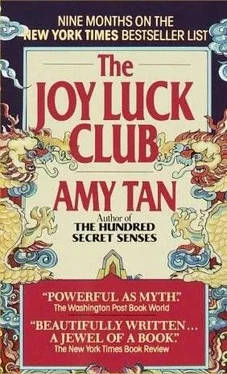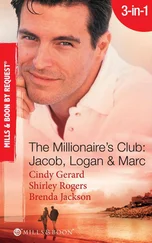After he lost the malpractice lawsuit-his first, and a big shock to him I now realize-he started pushing me to make decisons. Did I think we should buy an American car or a Japanese car? Should we change from whole-life to term insurance? What did I think about that candidate who supported the contras? What about a family?
I thought about things, the pros and the cons. But in the end I would be so confused, because I never believed there was ever any one right answer, yet there were many wrong ones. So whenever I said, "You decide," or "I don't care," or "Either way is fine with me," Ted would say in his impatient voice, "No, you decide. You can't have it both ways, none of the responsibility, none of the blame."
I could feel things changing between us. A protective veil had been lifted and Ted now started pushing me about everything. He asked me to decide on the most trivial matters, as if he were baiting me. Italian food or Thai. One appetizer or two. Which appetizer. Credit card or cash. Visa or MasterCard.
Last month, when he was leaving for a two-day dermatology course in Los Angeles, he asked if I wanted to come along and then quickly, before I could say anything, he added, "Never mind, I'd rather go alone."
"More time to study," I agreed.
"No, because you can never make up your mind about anything," he said.
And I protested, "But it's only with things that aren't important."
"Nothing is important to you, then," he said in a tone of disgust.
"Ted, if you want me to go, I'll go."
And it was as if something snapped in him. "How the hell did we ever get married? Did you just say 'I do' because the minister said 'repeat after me'? What would you have done with your life if I had never married you? Did it ever occur to you?"
This was such a big leap in logic, between what I said and what he said, that I thought we were like two people standing apart on separate mountain peaks, recklessly leaning forward to throw stones at one another, unaware of the dangerous chasm that separated us.
But now I realize Ted knew what he was saying all along. He wanted to show me the rift. Because later that evening he called from Los Angeles and said he wanted a divorce.
Ever since Ted's been gone, I've been thinking, Even if I had expected it, even if I had known what I was going to do with my life, it still would have knocked the wind out of me.
When something that violent hits you, you can't help but lose your balance and fall. And after you pick yourself up, you realize you can't trust anybody to save you-not your husband, not your mother, not God. So what can you do to stop yourself from tilting and falling all over again?
My mother believed in God's will for many years. It was as if she had turned on a celestial faucet and goodness kept pouring out. She said it was faith that kept all these good things coming our way, only I thought she said "fate," because she couldn't pronounce that "th" sound in "faith."
And later, I discovered that maybe it was fate all along, that faith was just an illusion that somehow you're in control. I found out the most I could have was hope, and with that I was not denying any possibility, good or bad. I was just saying, If there is a choice, dear God or whatever you are, here's where the odds should be placed.
I remember the day I started thinking this, it was such a revelation to me. It was the day my mother lost her faith in God. She found that things of unquestioned certainty could never be trusted again.
We had gone to the beach, to a secluded spot south of the city near Devil's Slide. My father had read in Sunset magazine that this was a good place to catch ocean perch. And although my father was not a fisherman but a pharmacist's assistant who had once been a doctor in China, he believed in his nengkan , his ability to do anything he put his mind to. My mother believed she had nengkan to cook anything my father had a mind to catch. It was this belief in their nengkan that had brought my parents to America. It had enabled them to have seven children and buy a house in the Sunset district with very little money. It had given them the confidence to believe their luck would never run out, that God was on their side, that the house gods had only benevolent things to report and our ancestors were pleased, that lifetime warranties meant our lucky streak would never break, that all the elements were in balance, the right amount of wind and water.
So there we were, the nine of us: my father, my mother, my two sisters, four brothers, and myself, so confident as we walked along our first beach. We marched in single file across the cool gray sand, from oldest to youngest. I was in the middle, fourteen years old. We would have made quite a sight, if anyone else had been watching, nine pairs of bare feet trudging, nine pairs of shoes in hand, nine black-haired heads turned toward the water to watch the waves tumbling in.
The wind was whipping the cotton trousers around my legs and I looked for some place where the sand wouldn't kick into my eyes. I saw we were standing in the hollow of a cove. It was like a giant bowl, cracked in half, the other half washed out to sea. My mother walked toward the right, where the beach was clean, and we all followed. On this side, the wall of the cove curved around and protected the beach from both the rough surf and the wind. And along this wall, in its shadow, was a reef ledge that started at the edge of the beach and continued out past the cove where the waters became rough. It seemed as though a person could walk out to sea on this reef, although it looked very rocky and slippery. On the other side of the cove, the wall was more jagged, eaten away by the water. It was pitted with crevices, so when the waves crashed against the wall, the water spewed out of these holes like white gulleys.
Thinking back, I remember that this beach cove was a terrible place, full of wet shadows that chilled us and invisible specks that flew into our eyes and made it hard for us to see the dangers. We were all blind with the newness of this experience: a Chinese family trying to act like a typical American family at the beach.
My mother spread out an old striped bedspread, which flapped in the wind until nine pairs of shoes weighed it down. My father assembled his long bamboo fishing pole, a pole he had made with his own two hands, remembering its design from his childhood in China. And we children sat huddled shoulder to shoulder on the blanket, reaching into the grocery sack full of bologna sandwiches, which we hungrily ate salted with sand from our fingers.
Then my father stood up and admired his fishing pole, its grace, its strength. Satisfied, he picked up his shoes and walked to the edge of the beach and then onto the reef to the point just before it was wet. My two older sisters, Janice and Ruth, jumped up from the blanket and slapped their thighs to get the sand off. Then they slapped each other's back and raced off down the beach shrieking. I was about to get up and chase them, but my mother nodded toward my four brothers and reminded me: " Dangsying tamende shenti ," which means "Take care of them," or literally, "Watch out for their bodies." These bodies were the anchors of my life: Matthew, Mark, Luke, and Bing. I fell back onto the sand, groaning as my throat grew tight, as I made the same lament: "Why?" Why did I have to care for them?
And she gave me the same answer: " Yiding ."
I must. Because they were my brothers. My sisters had once taken care of me. How else could I learn responsibility? How else could I appreciate what my parents had done for me?
Matthew, Mark, and Luke were twelve, ten, and nine, old enough to keep themselves loudly amused. They had already buried Luke in a shallow grave of sand so that only his head stuck out. Now they were starting to pat together the outlines of a sand-castle wall on top of him.
Читать дальше












